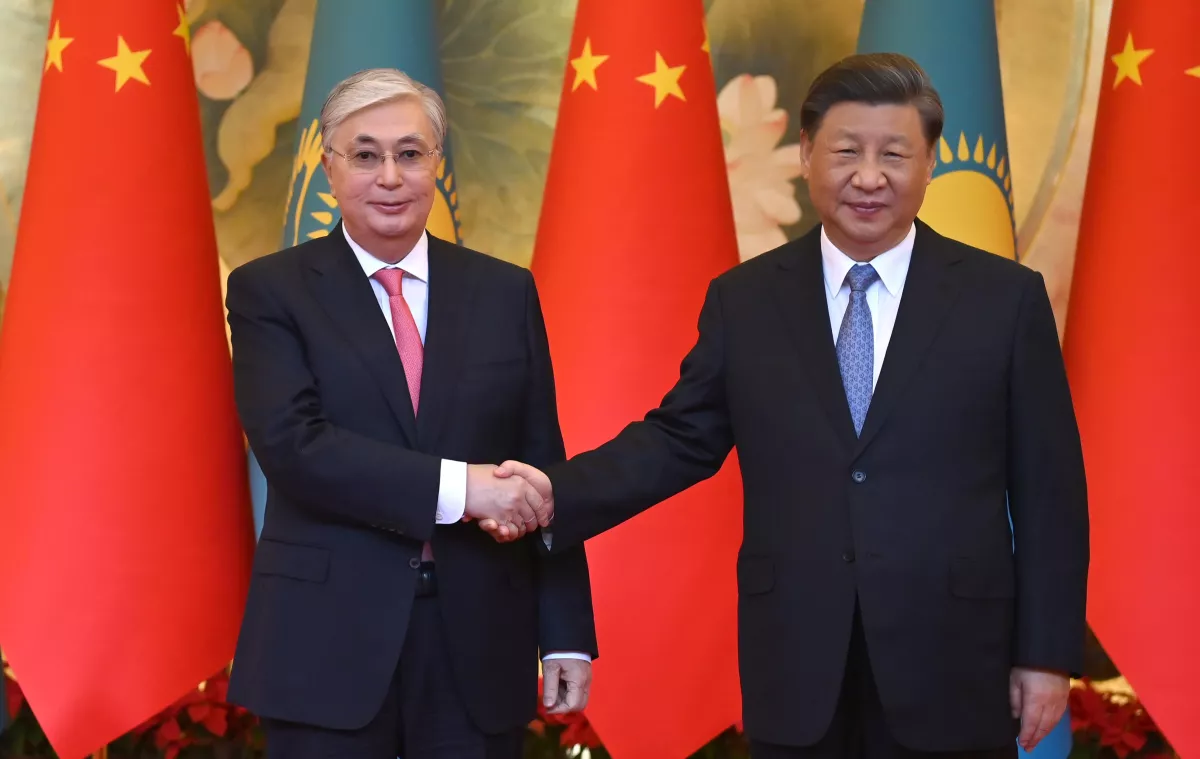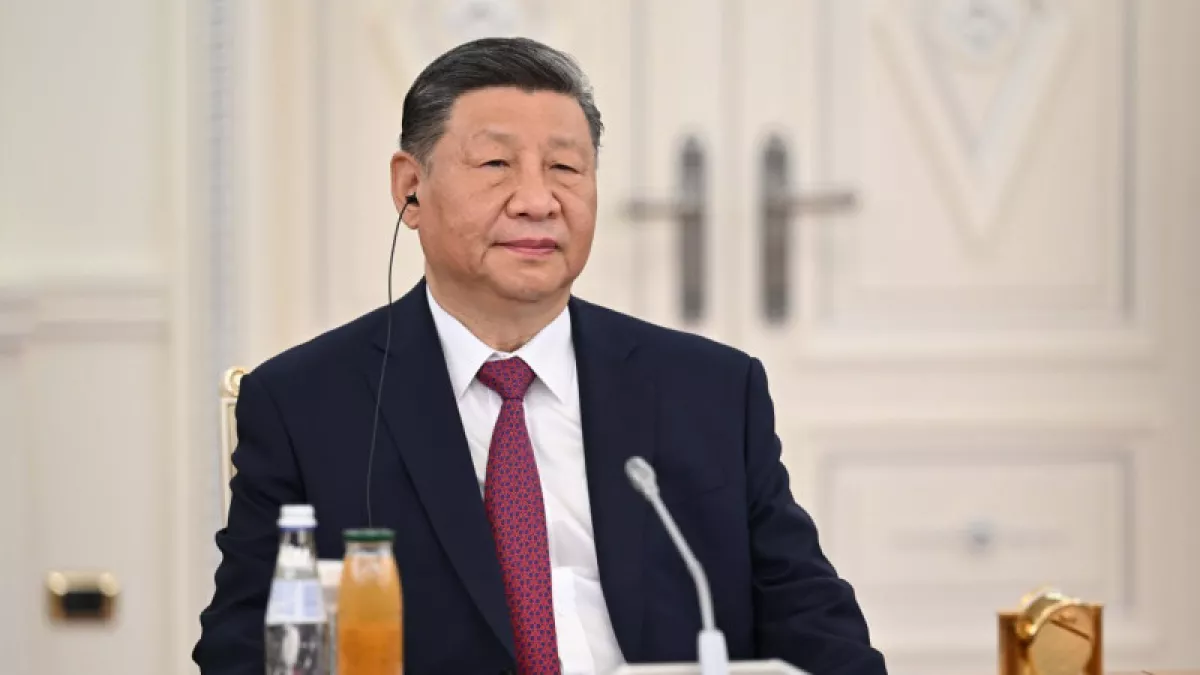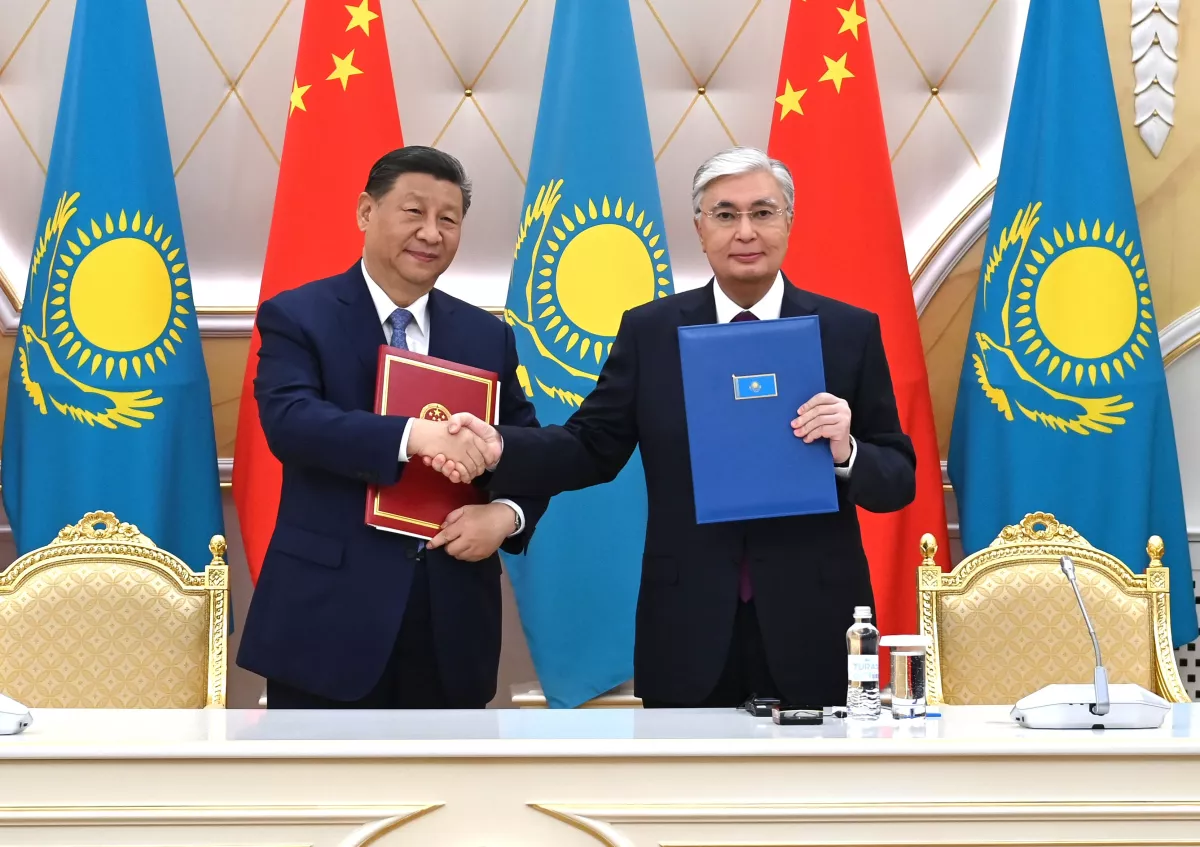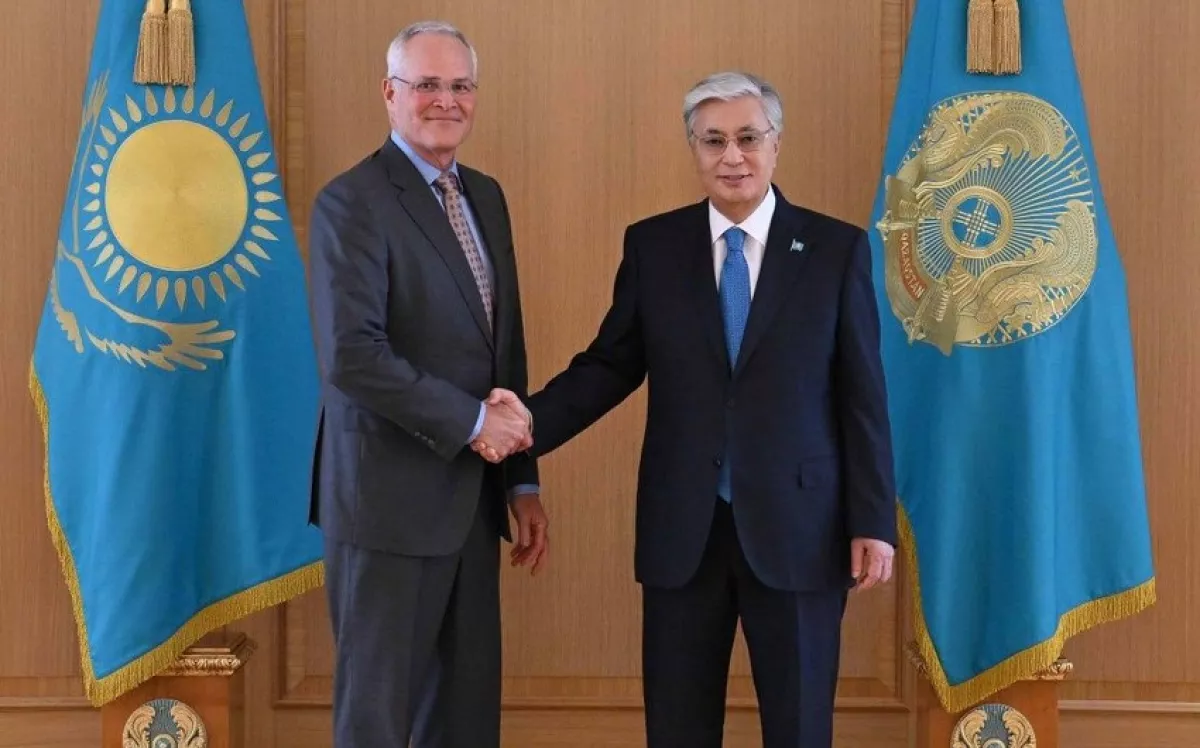Kazakhstan, China, and the axis of stability in Eurasia Navigating global geopolitics
President of the People's Republic of China Xi Jinping and President of Kazakhstan Kassym-Jomart Tokayev held talks during which they reaffirmed the special nature of bilateral relations between Beijing and Astana. The official visit of the Chinese leader was not only a vivid demonstration of friendship between the two countries, but also an important geopolitical signal about the growing role of Central Asia in the global architecture of security and cooperation.

Kassym-Jomart Tokayev emphasised that Xi Jinping is a highly respected guest on Kazakh soil and described his visit as clear evidence of the sincere and enduring ties between the two nations. He highlighted the personal support of the Chinese leader in achieving unprecedented momentum in bilateral engagement, calling the current stage in the relationship a "golden period" of comprehensive and everlasting strategic partnership.
The President of Kazakhstan also described Xi Jinping as a great statesman and wise leader, who enjoys high prestige on the international stage. He expressed his satisfaction with China’s achievements in building socialism with Chinese characteristics.
One of the key points highlighted by Tokayev was the absence of any political conditions imposed by China in its cooperation with Kazakhstan. Beijing consistently supports Kazakhstan’s sovereignty and security, which, according to Tokayev, holds special significance amid the turbulent international environment. The President of Kazakhstan expressed his backing for China’s peaceful initiatives and gave high praise to its contribution toward shaping a just global order.
China remains Kazakhstan’s largest trade and economic partner — by the end of 2024, the volume of bilateral trade reached a record $44 billion. Tokayev also specifically noted the high level of coordination between the two countries within international and regional platforms such as the UN, SCO, BRICS+, and the “Central Asia–China” format.

In his response, Xi Jinping expressed admiration for Kazakhstan’s achievements and emphasised the resilient nature of bilateral ties, which have withstood the test of global instability. According to him, the foundation of this strength lies not only in geographical proximity and historical friendship but also in the objective need for joint development. He noted that this partnership enriches the concept of a community with a shared future for China and Kazakhstan with new substance.
The Chinese leader expressed his readiness to further deepen the special format of relations, which, in his view, will contribute to the stability and prosperity not only of the region but of the entire world.
Xi Jinping paid particular attention to the implementation of the principles of genuine multilateralism, which entails protecting the interests of a broad range of developing countries. He also emphasised the need to strengthen the international system with the central role of the United Nations and to ensure the supremacy of international law. In this context, he noted the importance of expanding bilateral cooperation in law enforcement and defence, which will enhance the fight against terrorism, separatism, and extremism.
The leaders also discussed humanitarian aspects of their cooperation, including the opening of cultural centres and the implementation of initiatives in education and tourism. The declaration of 2025 as the Year of Tourism of China in Kazakhstan became another step towards strengthening mutual trust and deepening cultural ties.

During the visit, the parties signed 24 intergovernmental and interagency documents covering key areas of cooperation — energy, aerospace, digital economy, customs regulation, agriculture, tourism, intellectual property protection, healthcare, media, science, and interregional ties. Additionally, intergovernmental agreements were concluded on the promotion and mutual protection of investments, as well as on technical and economic cooperation.
The significance of Xi Jinping’s visit is further underscored by the fact that it took place on the eve of the second “China–Central Asia” summit. This clearly demonstrates the growing importance of the region in global geopolitics. Previously, forums in a similar format had been held between Central Asia and the EU and Italy.
At the same time, Astana shows its commitment to a multi-vector foreign policy course. In a congratulatory message to U.S. President Donald Trump on his birthday, Tokayev highly praised his “active and pragmatic” efforts aimed at strengthening global stability and security. The President of Kazakhstan also expressed appreciation for Trump’s pursuit of developing strategic partnership and confirmed Kazakhstan’s interest in expanding mutually beneficial cooperation with the United States.

At the same time, Tokayev held a meeting with Darren Woods, Chairman of the Board and CEO of ExxonMobil, during which investment projects in the energy sector were discussed. The head of state highly appreciated the corporation’s contribution to the country’s economy and called it one of Kazakhstan’s reliable partners in the oil and gas industry.
During these days, the President of Kazakhstan also met with the speakers of the parliaments of the countries participating in the Parliamentary Assembly of Turkic-speaking States (TurkPA), describing the organisation as an important political platform. He emphasised that thanks to the work of the Assembly, Turkic solidarity is strengthening every year, which contributes to the growing international authority of the entire Turkic world. As Tokayev noted, “our countries are united by a common aspiration for closer ties.”
Thus, Kazakhstan is confidently strengthening its status as a “middle power” state, playing an active and constructive role in the emerging new world order, navigating between global centres of power and developing partnerships across all key directions — from West to East.








